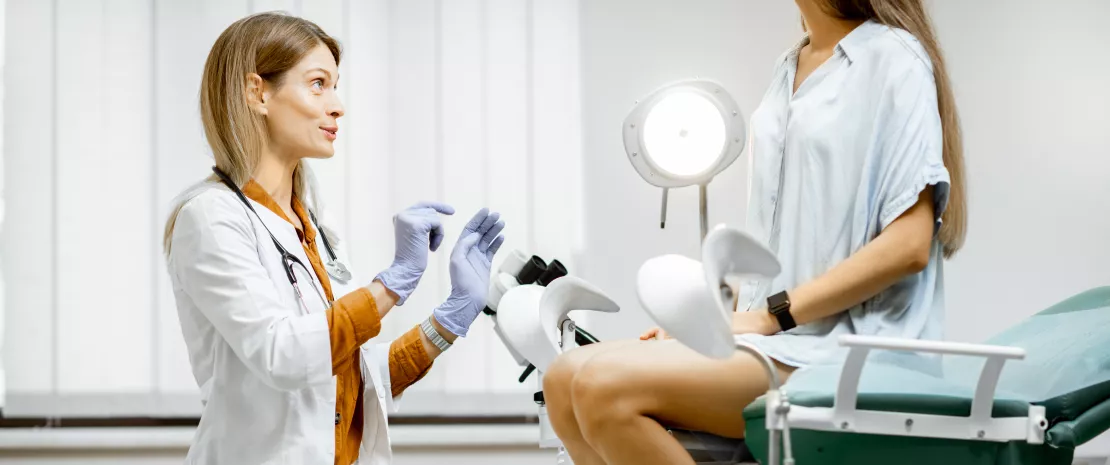Vaginal microbiota and human papillomavirus (HPV): bacteria to the rescue
Persistent HPV infections are the main cause of cervical cancers. Knowing the vaginal microbiota composition associated with such infections could help identify new therapeutic strategies to prevent cervical cancer.
- Learn all about microbiota
- Microbiota and related conditions
- Act on your microbiota
- Publications
- About the Institute
Healthcare professionals section
Find here your dedicated section
Sources
This article is based on scientific information

About this article
Vaginal human papillomavirus (HPV) is the most common sexually transmitted infection (STI). It is usually asymptomatic. Most of the time, the body eliminates these viruses by itself. However, they can persist in some women, putting them at risk of infections that can lead to cervical cancer. (sidenote: https://www.who.int/fr/news-room/fact-sheets/detail/human-papillomavirus-(hpv)-and-cervical-cancer ) , cervical cancer is currently incurable and represents a major public health concern.
99 % Almost all cases of cervical cancer are associated with a high-risk human papillomavirus (HPV) infection
11,7% The global prevalence of HPV infection is 11.7%
Dysbiosis of the vaginal microbiota
The risk factors for persistent HPV infections are known: they consist of behavioral (vaginal douching, sexual intercourse) and biological (bacterial vaginosis, bacterial vaginosis, sexually transmitted infections) factors that disturb the vaginal microbiota (dysbiosis). To date, most studies have focused on the link between dysbiosis and precancerous or cancerous lesions of the cervix, but none on the identification of a microbial signature of persistent HPV infection that can be detected before lesions appear, thereby preventing progression to cancer.
Chinese researchers studied the vaginal microbiota composition of 100 women aged 21 to 64 years and divided them into three groups: those suffering from persistent HPV infection (group P), those who had eliminated the virus (group C), and lastly those who had not been infected by HPV during the previous two years (group NC).
41% Only 41% of women surveyed say they have taken probiotics and/or prebiotics (either orally or vaginally)
Probiotics for prevention?
The analyses showed that HPV infection is associated with a disturbance of the vaginal microbiota, with differences observed between the NC group and groups P and C. The analyses also showed that HPV infection is characterized by depleted bacterial richness and lower bacterial diversity. Current or past infection is associated with an increase in Firmicutes and Actinobacteriota, and a decrease in Proteobacteria. The authors believe that this dysbiosis facilitates infection by the virus, whereas an increased abundance of vaginal Proteobacteria is thought to stabilize the microbiota. While the vaginal microbiota of all three groups were dominated by lactobacilli, their abundance was even greater in patients who had eliminated the virus (group C) than in NC patients. The researchers also observed a greater abundance of lactobacilli or bifidobacteria species depending on the type of virus eliminated, suggesting that these bacteria have a protective effect against different types of viruses.
These findings have yet to be confirmed, but the researchers conclude that they pave the way for the development of probiotics which can be used to treat HPV infection early, before malignant lesions of the cervix appear.












